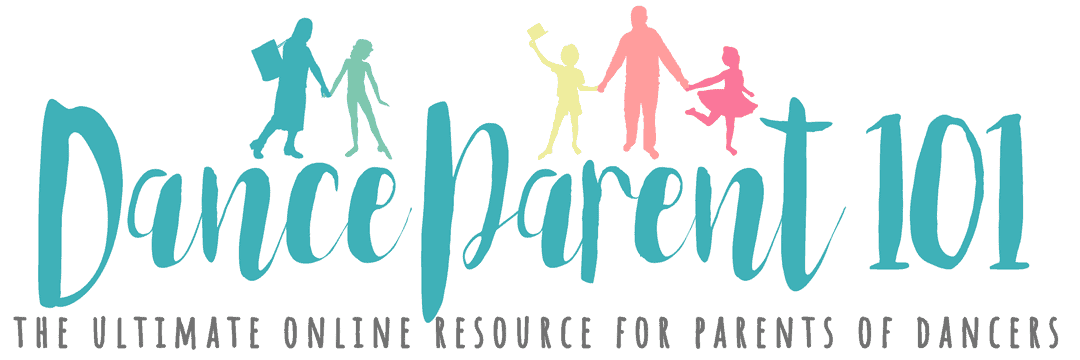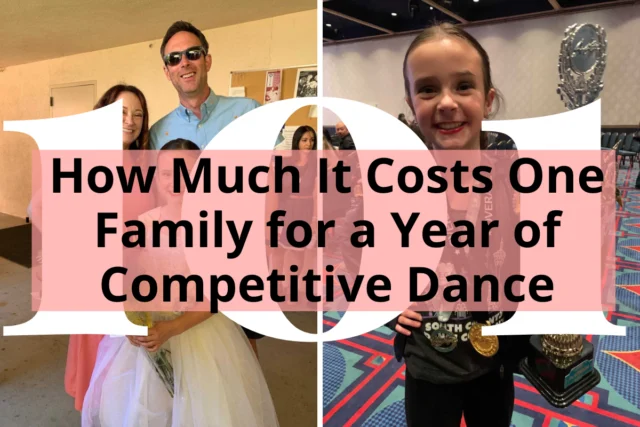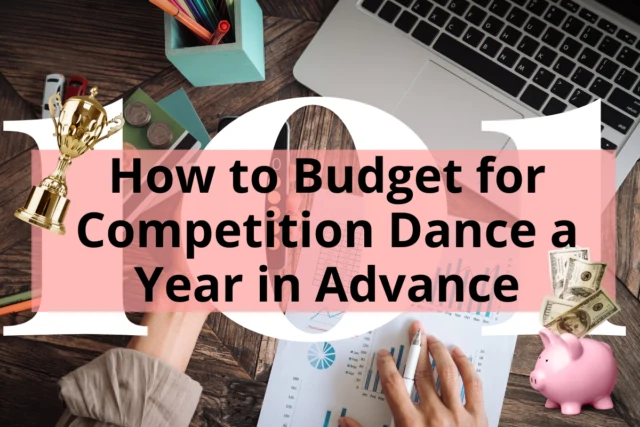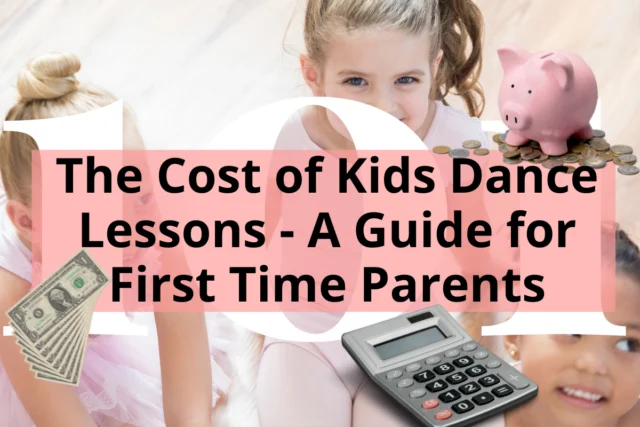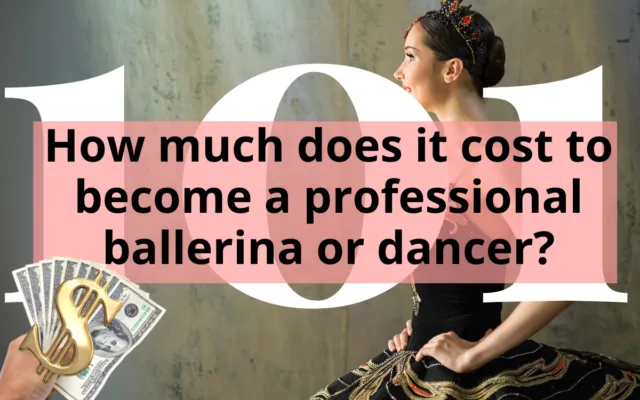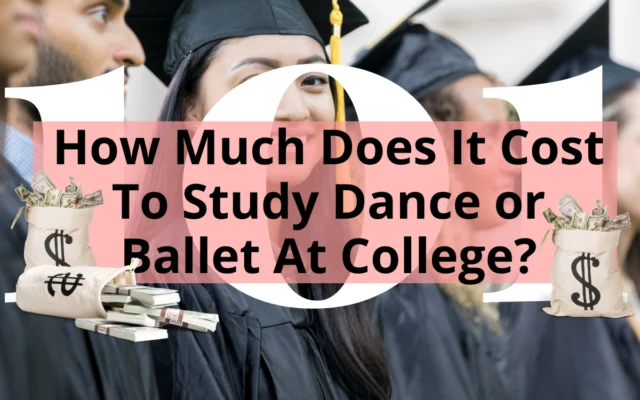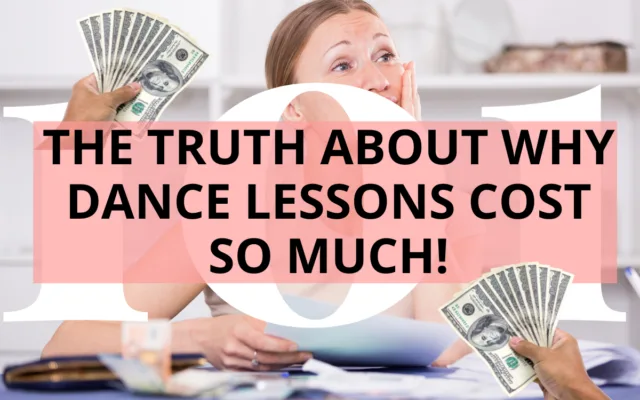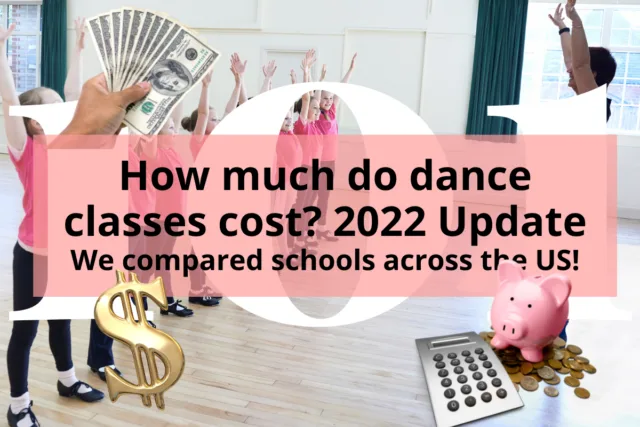Have you recently been talking to a friend who attends a different dance studio only to find out they pay half of what you do for their child’s dance or ballet lessons compared to you? Has this made you start wondering why you are paying more? Or perhaps you are paying less and want to know if you are missing out on anything!
Some of the reasons your dance studio is more or less expensive than others could be because of the location costs, class sizes, teacher expertise, extras included, class length, and facilities among other factors.
No two dance or ballet studios will be the same, so neither will the amount they charge be the same! When you hear that you are paying more or less, it makes some people question if they are getting what they pay for. Here we explain what you’re paying for when you choose one dance studio over another.

Why your dance or ballet studio fees are higher or lower than other dance schools?
As we explained there are many factors that cause one dance studio to charge more or less than another dance or ballet school but if you are wondering how much a dance lesson costs, check out our article How much do dance classes cost? We compare 50+ schools across the US! UPDATED 2022!
The following is a breakdown of what the differences between schools might be.
Use the list to help you discern whether any of these factors are the factors that contribute to why your dance school charges you more or less.
Remember just one of the items on the list could be a major contributor to how much your lessons are compared to someone else or it could be a culmination of many of them!
1. The Location of the Dance Studio
If your school is in a city rather than in the suburbs or a town the rent or lease of the space may contribute to pricing differences, as well as the living and travel costs of the teachers who need to receive a wage that enables them to live close to that location.
2. Knowledge and Experience of the Teaching Faculty
An experienced teacher who runs an efficient business and produces amazing dancers will charge accordingly compared to a teacher with little experience.
If you aren’t sure about your teacher’s qualifications check out our article What Qualifications Do I Need to be a Dance Teacher?
3. The variety of styles or focused teaching in one discipline
Some studios may offer a large variety of dance styles which means they have a large supplement of teachers who need to be paid for their expertise. Other schools may focus on teaching in one discipline and ensure they have the best teachers available to do this.
Either way the studio you attend may need to employ specialty teachers to ensure the quality of teaching and training is the best available or so there is a choice of discipline available to parents and dancers.
Not sure what styles of dance there are to be taught? Take a look at our alphabetical list of dance styles here!
4. The demand for places at the dance studio
Places within classes at certain schools may be in high demand and therefore they may charge more to ensure only the most dedicated take those places.
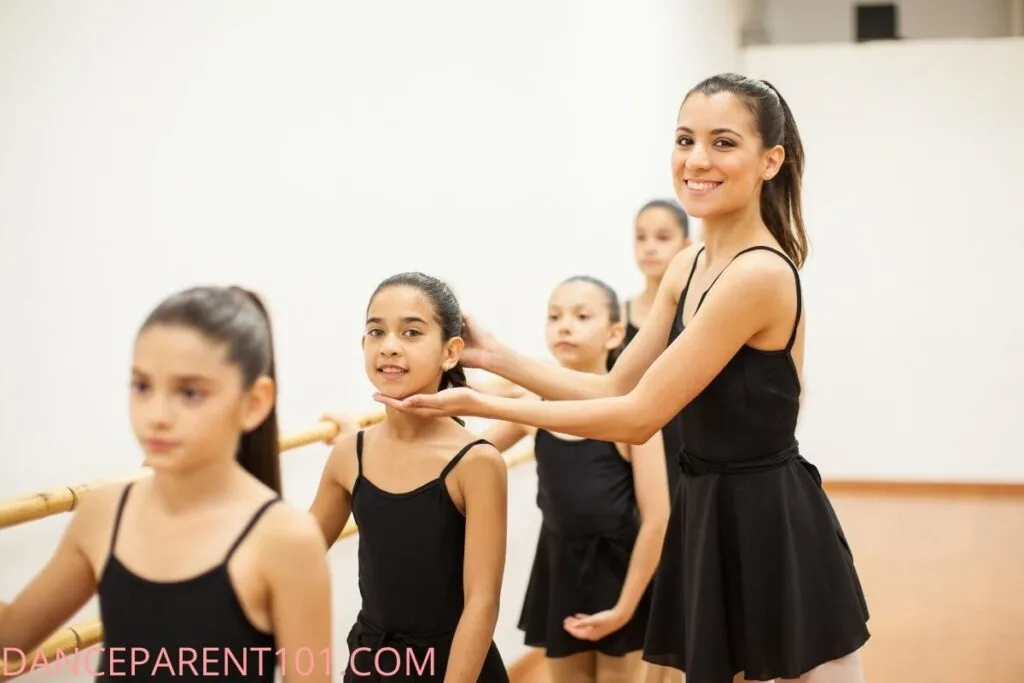
5. The Teachers’ Reputation or professional experience
If a teacher has a reputation for being a great teacher or getting dancers’ feet in the door to a professional career or can boast a professional resume that is longer than your arm, they will generally charge more for their expertise and for passing on their knowledge and experience. And why shouldn’t they – they spent years earning their reputation and dancing to get to where they did – just take a read of our article How many years of dance or ballet does it take to be a professional!
WARNING: If this is why you chose your teacher and school you need to be aware, that no teacher should be telling you they can help make you or your child famous or give them the career they want! These are huge warning signals to find a different teacher and you should investigate the validity of their claims before moving forward!
Also, it is important to know that just because a dancer became famous or well known for their ability to dance it does not mean they are a great teacher or are teaching your child appropriately.
6. How long the lessons are – 30mins compared to 1.5hrs
This one is really simple! The lessons at one dance studio may be shorter or longer than at another.
7. How many lessons are taken a week
Some dance studios give discounts to students who attend multiple lessons per week. Others also give family discounts. These are all at the discrepancy of your dance studio, but are something you can investigate!
If you are not sure how many classes your child should be taking a week, read How Many Dance or Ballet Classes (Age & Class Guide)
8. What is included in the lesson price
One school might include extra rehearsals, extra exam preparation lessons or similar within their overall price whereas others might charge extra for these.
Not exactly sure what all the costs are when you are involved in dance or ballet? Check out Ultimate Guide to the costs of dance and Ballet lessons here!
9. What else is your child doing other than lessons?
If someone says to you I am spending this much a week on dance – what else is their child doing or not doing compared to yours?
Are you paying for exam fees, is your child on the competition team which is a huge time and financial commitment, or are you paying for multiple lessons per week?
10. The facilities and equipment available
One school might have top-of-the-line, newly renovated facilities and teaching tools compared to another that is a simple space with a barre and sprung floor.
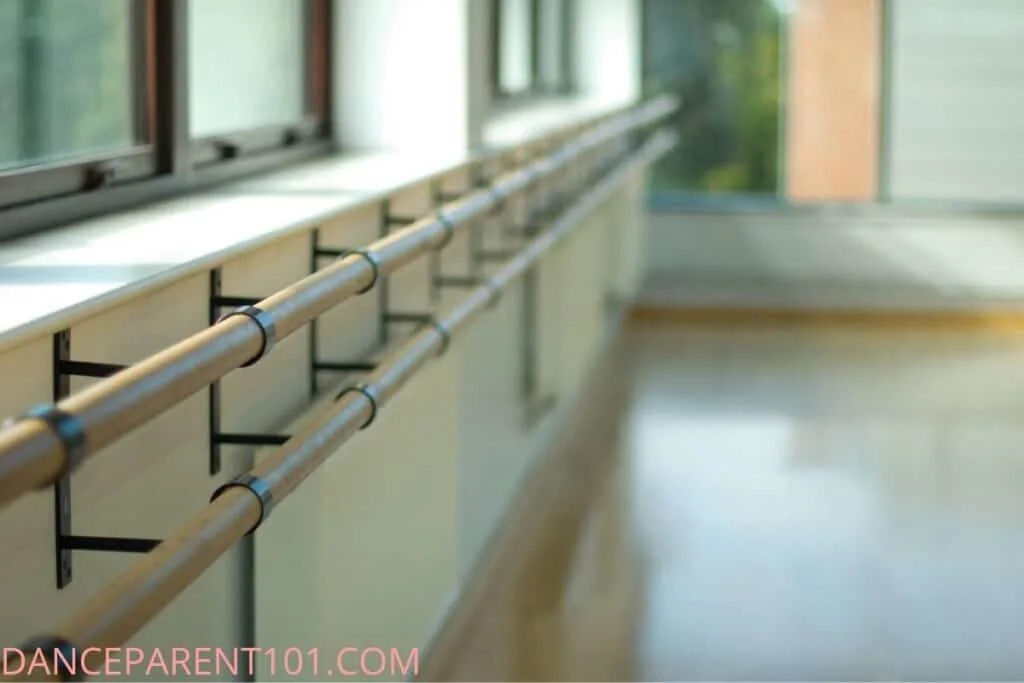
11. Funding and Grants
Some dance schools may receive government arts funding depending on their location or the population of students they cater for. Therefore an advertised price for lessons may be less than why you are paying.
12. The size of the dance studio
Larger schools with many classes and students may be able to reduce their fees but it might mean larger class sizes compared to a smaller school with higher tuition fees but fewer students and smaller class sizes.
13. Because of the business plan they follow!
Most dance teachers become teachers because of their passion and love of dance rather than for business. Making their dance studio into a stable and profitable business is a skill many have to learn and therefore the price of lessons can be reflective of this skill.
14. The Dance School is the owner’s primary source of income.
Some dance schools are owned and operated by teachers who have another source of main income. For example, they work full-time during the day and teach at their dance school in the evenings and on the weekends.
Other dance schools are owned and operated by teachers who have decided to devote their vocation to teaching dance and therefore the dance studio is their primary source of income and can provide services and training that reflect this commitment.
15. Non-profit or passion over profit mindset
There can also be a philosophy amongst some that dance is an art form and passion and that dance should be accessible to as many as possible therefore charging to make a profit is not aligned with their values. Such dance classes are usually run by people who offer their time and skill as volunteers or who have full-time jobs doing something else but teach with a minimal fee to cover costs and simply serve a need in their community.
Other teachers whose fees significantly tend to undervalue their time and expertise because dance is their passion and it does not feel like work, so they charge less than should or could.
If this last one is your dance studio, you should realize that this kind of business model is one that is most likely to crumble and fail. You might be getting cheap tuition, but your teacher may not be able to sustain the school through turbulent times and in the end have to close, which is of no benefit to you in the long run!
